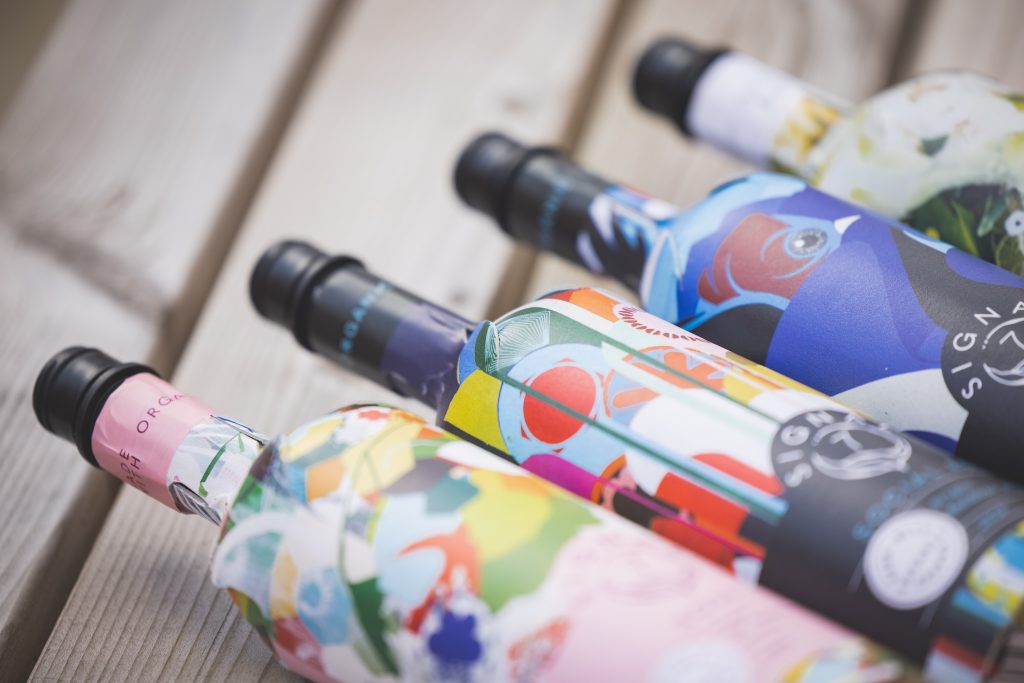The sustainable packaging business has a global mission to decarbonise the food and drinks industry with its innovative products that have the lowest carbon footprint and can easily be recycled again. It started in April 2011 with the Frugal Cup, the world’s first coffee cup made from 96% recycled paper. Building on its success, the team created the Frugal Bottle which is made from 94% recycled paper and has a carbon footprint up to six times lower than an equally sized glass bottle.
While carving out a market share with this new product, Frugalpac’s team applied in 2020 for the Small Grant Scheme through New Anglia Local Enterprise Partnership (LEP) to expand its premises.
To achieve its ambitious plans with the bottle production, it established a new manufacturing facility dedicated to the Frugal Bottle aided by a £13,427 grant in November 2021.
Frugalpac CEO Malcolm Waugh said: “Support from New Anglia LEP in 2020 helped us develop our facility and meet our business goals at the same time. That year we launched the Frugal Bottle – the world’s first and only commercially available paper bottle for wines, spirits and olive oils.”
Powering on strongly with the Frugal Bottle factory, the business employed 12 new people who took on the bottle production and maintenance of ancillary equipment, including the clean room and an external storage unit for raw materials and finished goods.
Its success led to opening an 11,000 square foot factory in Ipswich in January this year, to meet global demand and demonstrate Frugal Bottle assembly machines. All 12 new people moved to the new facility at Futura Park, part of the LEP’s Space to Innovate Enterprise Zone, and six more people joined the crew. Time was of the essence to get the machine and infrastructure in place so the company could fulfil its ever-increasing order book. Since launching the paper bottle, sales and interest from drinks producers around the world have been so robust that it now has enquires to make more than 120 million bottles.
Customers are predominately drinks-based businesses ranging from independent vineyards through to large brands such as Greenall’s Gin. Having an ‘open platform’ where companies can brand the bottles themselves and produce them in-house creates endless possibilities for this sector.
Making the process even more sustainable, Frugalpac’s business model is to place machines at the heart of bottling plants, co-packers or packaging companies around the world so it can reduce the carbon footprint of its sustainable packaging even further.
This summer, Canadian firm KinsBrae Packaging agreed a deal to buy the first Frugal Bottle Assembly Machine and install it in Canada to serve the North American market. Says Malcolm: “Now, we have strong enquiries from more than 100 other international brand, contract packing and packaging companies to buy Frugal Bottle Assembly Machines. Each machine will be able to produce 2.5 million Frugal Bottles a year.”
All Frugalpac products are scalable into international markets and the total estimated marketplace exceeds £600m in the UK and £10bn internationally. Malcolm and his team are dedicated to their cause while creating great products. “Our goal to save the planet one bottle at a time by cutting the carbon footprint of wine and spirits bottles by 84% continues,” he says.
On the impact of the grant received from the LEP, Malcolm comments: “Without the grant our business would not be in the same position it is today. It’s an extremely straightforward application and we got great input and support from the advisers. It enables growth quickly.”
Contact us on 0300 333 6536 or fill in the form to find out how we can support your business.

